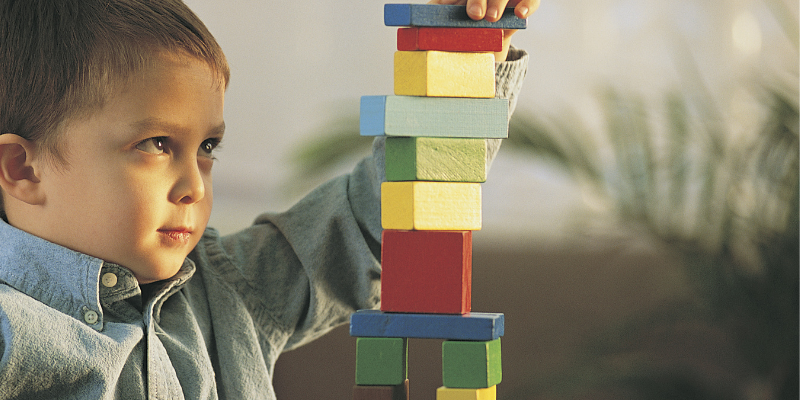
Report card time can be stressful for everyone involved. Kids and teens may be wracked with anxiety and dread. And when you see your child’s report card, you may experience frustration, disappointment, and sometimes anger. How you react to those grades can greatly impact your child’s self-esteem, motivation, and mental health.
1. When your child gets bad grades even though they’re working hard.
Wrong reaction: How can you get such bad grades when you spend so much time studying?
Better reaction: If your child spends hours studying but still isn’t doing well at school, it may be time to investigate if a condition, such as ADD/ADHD or another learning problem is keeping your child from performing up to their ability. To make sure your child is getting the support needed, you may want to check into a 504 or Individualized Education Plan (IEP).
2. When grades are good, but not good enough in your child’s opinion.
Wrong reaction: Don’t be silly, this is a good report card.
Better reaction: Don’t discount your child’s feelings. If your child has a meltdown and feels like a failure because they didn’t get all A’s on their report card, they may be a perfectionist. These students place so much pressure on themselves and often set unrealistic goals, so they never feel good about their achievements. This can take a toll on their self-esteem and mental health. Perfectionists are at increased risk of anxiety, depression, and chronic stress. Help your child by modeling healthy coping strategies, sharing your own stories of how you handle failure and praise them for things other than academic achievements and grades.
3. When classwork isn’t the problem, but the behavior is.
Wrong reaction: Why do you ruin everything with your bad attitude?
Better reaction: When disruptive, inappropriate, defiant, or aggressive behavior is skewing grades in the wrong direction, you may be tempted to blame them for their attitude or wait for your child to simply grow out of it. But if behavioral problems persist, it can lead to serious trouble, including eventual suspension or expulsion. Checking with a mental healthcare professional to see if these problems are serious enough to need treatment can help put your student on the path to better behavior and better academic achievement.
4. When homework is good, but tests are a problem.
Wrong reaction: Tests are no different than homework. It’s all in your head.
Better reaction: Some young people are very smart and diligent, but they struggle on exams due to test-day anxiety. Shaming them just makes them feel worse. Rather than telling them not to worry or that there’s nothing to be anxious about, acknowledge their feelings and teach them some simple strategies to help them overcome exam jitters. Deep breathing is one of the most powerful anxiety tamers and it calms nerves almost instantly. Teaching youngsters how to eliminate ANTs (automatic negative thoughts) is another tool that can help them get past performance anxiety.
5. When grades are bad due to lack of effort.
Wrong reaction: I’m taking your phone away until your grades improve!
Better reaction: If you know your child hasn’t been doing their homework or has been slacking in the studying department, it’s time for a heart-to-heart about effort. Ask your child if they have a plan to improve and let them know that there will be consequences. Make the consequences more immediate and tie them to their effort. For example, tell them they can’t use their phone until their homework is completed.
6. When grades have gone down dramatically.
Wrong reaction: What’s wrong with you? You used to be so smart.
Better reaction: Don’t be furious about a bad report card, be curious. A sudden drop in grades, especially in teens, may be a cause for concern. Take stock of your teen’s lifestyle habits to determine if a lack of sleep, too many extracurricular activities, or too much time on social media may be preventing them from hitting the books. Be aware that this may also be a warning sign of a more serious problem, such as substance abuse, depression, or being bullied. Talk to your teen about what might be the underlying reasons for the change in grades and consider setting up a meeting with their teacher. Remember that solving the root cause of the problem is far more important than the actual grades, so be sure to support your teen rather than scolding them.
7. When grades are good.
Wrong reaction: You got a great report card, so we’re giving you a new phone.
Better reaction: You may be tempted to reward good grades with money, a shiny new object, or a big celebratory dinner. But doling out gifts sends the wrong message. It tells children that your love is tied to how good their grades are. This can fuel a sense of perfectionism, anxiety, and a fear of failure. Rather than focusing your attention on the letter grades or GPA, pay attention to the effort that went into the grades.
At Amen Clinics, we have treated thousands of children and teens for school problems, including anxiety, behavioral issues, ADD/ADHD, addictions, and more. We use brain SPECT imaging as part of a comprehensive evaluation to diagnose and treat children. This helps our Child & Adolescent Psychiatrists identify any dysfunction or damage in the brain, as well as any co-existing conditions, that need to be addressed. Based on this information, we are better able to personalize treatment for your child using the least toxic, most effective solutions for a better outcome.
Speak to a specialist today at 888-288-9834 or schedule a visit online.





No Comments »
No comments yet.
RSS feed for comments on this post.
Leave a comment